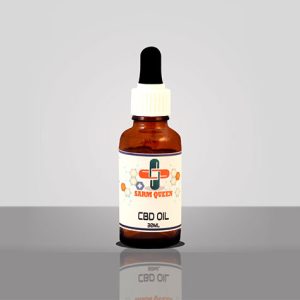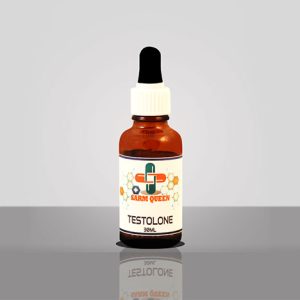GW-501516 – 1000mgs
Cardarine, also known as GW501516, is a drug that was developed in the 1990s as a potential treatment for cardiovascular and metabolic diseases. It is a selective agonist of the peroxisome proliferator-activated receptor delta (PPAR-delta), which plays a key role in regulating the body’s metabolism. It is believed that activation of PPAR-delta by Cardarine can help increase the oxidation of fatty acids and improve glucose metabolism, which can lead to improved energy levels and endurance.
Although Cardarine was originally developed for medical use, it has become popular in the fitness and bodybuilding community as a performance-enhancing drug. Many athletes use it to increase their aerobic capacity and reduce recovery time, which can help improve their overall athletic performance. Some studies have also shown that Cardarine can help reduce inflammation in the body, which can be beneficial for athletes who experience muscle soreness and fatigue after intense training sessions.
However, it is important to note that Cardarine is not approved for human use and its long-term effects on the body are not well understood. In fact, there have been concerns about its potential carcinogenic effects, as some animal studies have shown an increased risk of cancer with long-term use. For this reason, Cardarine has been banned by the World Anti-Doping Agency (WADA) as a performance-enhancing drug, and its use in competitive sports is strictly prohibited.
Despite the potential risks associated with Cardarine, some individuals continue to use it as a performance-enhancing drug. It is important for anyone considering using Cardarine to be aware of the potential risks and to consult with a healthcare professional before beginning use. Additionally, individuals should be aware that the use of Cardarine in competitive sports is strictly prohibited and can result in serious consequences, including suspension and loss of eligibility to compete.
In summary, Cardarine is a drug that was originally developed for medical use, but has become popular in the fitness and bodybuilding community as a performance-enhancing drug. While it has been shown to have some potential benefits, including improved endurance and reduced inflammation, its long-term effects on the body are not well understood and there are concerns about its potential carcinogenic effects. Its use in competitive sports is strictly prohibited, and individuals should consult with a healthcare professional before considering its use.
Due to the difficulty of researching with liquids, dosing/crystalization and user feedback. We have decided to switch to POWDER based SARMS.
{4-[({4-methyl-2-[4-(trifluoromethyl)phenyl]-1,3-thiazol-5-yl}methyl)sulfanyl]-2-methylphenoxy}acetic acid
GW501516 (GW1516 or GSK-516) is a drug that acts as a PPARd modulator. GW 501516 activates AMP-activated protein kinase and stimulates glucose uptake in skeletal muscle tissue, and GW 501516 has been demonstrated to reverse metabolic abnormalities in obese men with pre-diabetic metabolic syndrome, most likely by stimulating fatty acid oxidation. It has been proposed as a potential treatment for obesity and related conditions, especially when used in conjunction with a synergistic compound AICAR, as the combination has been shown to significantly increase exercise endurance in animal studies.
GW-50156 regulates fat burning through a number of widespread mechanisms; it increases glucose uptake in skeletal muscle tissue and increases muscle gene expression, especially genes involved in preferential lipid utilization. This shift changes the body’s metabolism to favor burning fat for energy instead of carbohydrates or muscle protein, potentially allowing clinical application for obese patients to lose fat effectively without experiencing muscle catabolism or the effects and satiety issues associated with low blood sugar. GW-501516 also increases muscle mass, which improved glucose tolerance and reduced fat mass accumulation even in mice fed a very high fat diet, suggesting that GW-501516 may have a protective effect against obesity.
GW501516 is a selective agonist (activator) of the PPARδ receptor. It displays high affinity (Ki = 1 nM) and potency (EC50 = 1 nM) for PPARδ with > 1000 fold selectivity over PPARα and PPARγ.
In rats, binding of GW501516 to PPARδ recruits the co activator PGC-1a. The PPARδ/coactivator complex in turn up regulates the expression of proteins involved in energy expenditure. Furthermore in rats treated with GW501516, increased fatty acid metabolism in skeletal muscle and protection against diet-induced obesity and type II diabetes was observed. In obese rhesus monkeys, GW501516 increased high-density lipoprotein (HDL) and lowered very-low-density lipoprotein (VLDL). The mechanism by which PPARδ agonists increase HDL appears to be a result of increased expression of the cholesterol transporter ABCA1.
This article is intended for educational / informational purposes only. THIS PRODUCT IS INTENDED AS A RESEARCH CHEMICAL ONLY. This designation allows the use of research chemicals strictly for in vitro testing and laboratory experimentation only





Reviews
There are no reviews yet.